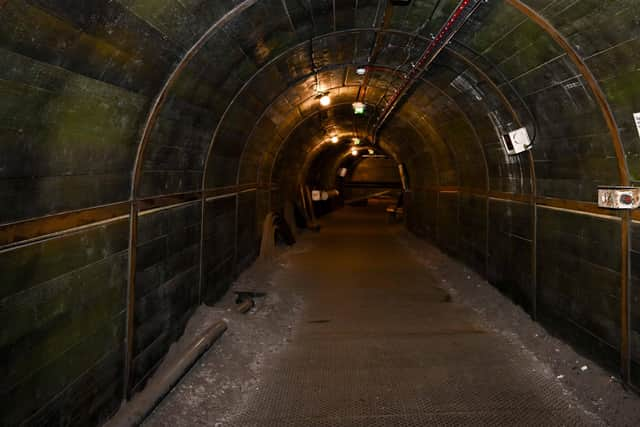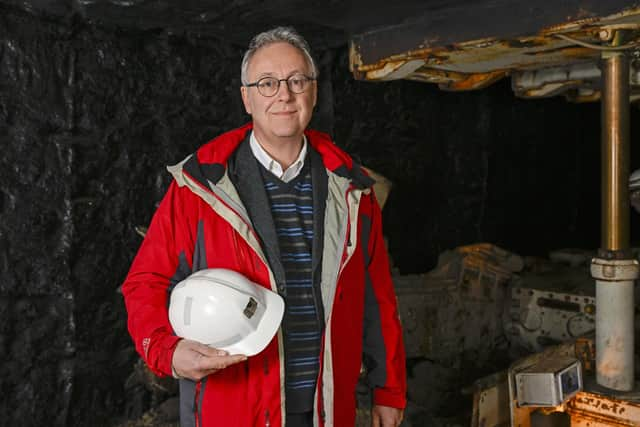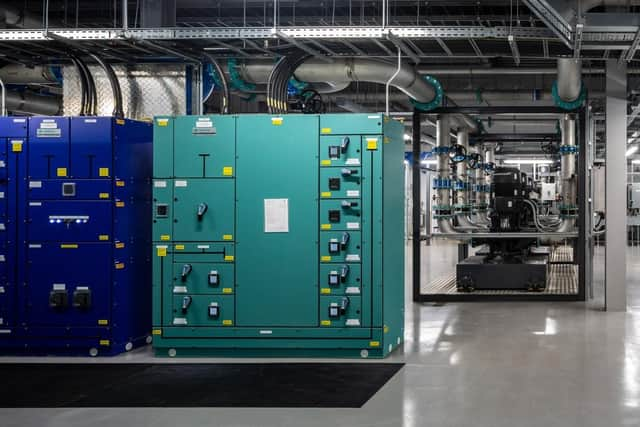How supercomputers and abandoned coal mines could be harnessed to heat your home
Now a ground-breaking new geothermal trial aims to harness that energy, store it in abandoned coal mines and use it to provide eco-friendly heating for thousands of homes in Scotland.
The £2.6 million feasibility study, the first of its kind in the UK, will capture warmth from the University of Edinburgh’s Advanced Computing Facility (ACF) – home to the national supercomputer and used for research such as national climate and health data modelling – which currently releases up to 70 gigawatt hours (GWh) of excess heat each year.
Advertisement
Hide AdAdvertisement
Hide AdThe process of cooling the supercomputers would be augmented to transfer the captured heat into water in disused local mines – up to a maximum temperature of 40°C – and this would then be transported by natural ground water flow in the mine workings and made available to warm buildings via heat pump technology.
The Edinburgh Geobattery project, led by Edinburgh-based geothermal company TownRock Energy – is being spearheaded by industry and academic partners from Scotland, the US and Ireland.
The University of Edinburgh is the lead research partner on the project and is providing £500,000 of funding as part of its own net zero objectives.
Professor Christopher McDermott, from the University of Edinburgh’s School of Geosciences, is lead academic on the project.


He said: “This project opens up the potential for extracting heat stored in mine water more broadly.
“Most disused coal mines are flooded with water, making them ideal heat sources for heat pumps.
“With more than 800,000 households in Scotland in fuel poverty, bringing energy costs down in a sustainable way is critical, and using waste heat could be a game-changer.”
David Townsend, founder of TownRock Energy, said: “We are pleased to be leading this multi-national research consortium, benefitting from world- leading academic expertise.


Advertisement
Hide AdAdvertisement
Hide Ad“Capturing, storing and reusing waste heat is critically important to reaching net zero, and here we are learning and testing how best to do this in the ground, in legacy coal mine infrastructure."
Professor Sir Peter Mathieson, principal and vice-chancellor of the University of Edinburgh, said: “The University’s own climate and sustainability targets mean that we need to look at a wide range of ways to address the challenges of the climate crisis.
“This project brings together these commitments alongside our own innovative research to find solutions to tackle climate change that deliver direct benefits to people and influence positive change locally and globally.”


Scottish Enterprise has awarded a £1 million grant to the project through the Joint Programming Platform Smart Energy Systems (JPP SES) and Geothermica – two networks that have co-funded projects developing innovative heat and cooling solutions.
The US Department of Energy will provide a further $1 million (£785,824) to fund researchers from Idaho National Laboratory and Lawrence Berkeley National Laboratory.
Suzanne Sosna, director of energy transition at Scottish Enterprise, said: “This is a remarkable, collaborative project for Scottish Enterprise to support alongside international and Scottish partners from government, academia, and industry.
“I’ll watch with keen interest how gigabytes can turn into clean heat as the Edinburgh Geothermal project progresses.”
University College Dublin, with support from Geothermica and Geological Survey Ireland, and the University of Strathclyde are also partners.
Comments
Want to join the conversation? Please or to comment on this article.